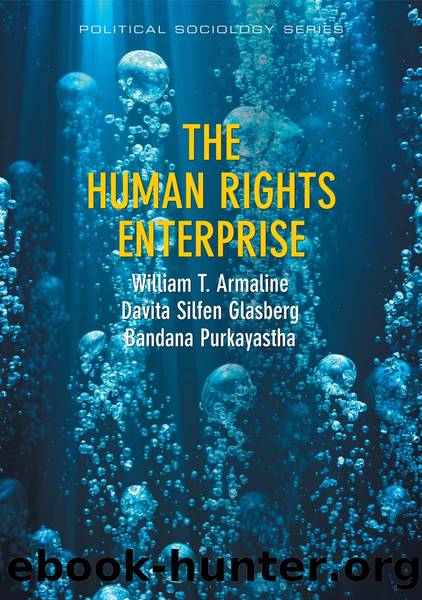The Human Rights Enterprise by unknow

Author:unknow
Language: eng
Format: epub
ISBN: 9780745688183
Published: 2014-12-15T00:00:00+00:00
Racial justice in the twenty-first century
As part of its international commitment to human rights, the US signed on to the International Convention on the Elimination of all forms of Racial Discrimination (ICERD) in 1966, and ratified it in 1994.21 While some of the most blatant racist structures of the early and mid-twentieth century were dismantled, new structures have been created and continue to lead to racial disparities in access to food, water, health, education, housing, jobs, voting rights, criminal justice (mass incarceration and the drug war specifically), and everyday experiences of racism.22
Indeed, as the US Human Rights Network recorded in its shadow report to the United Nations on US progress toward the elimination of racial discrimination, along with categorization and discrimination, new racial categories are currently being created such as equating Muslim-looking people with terrorists, and stratifying rights of non-white migrants by significantly curtailing their rights to due process (Purkayastha, Purkayastha and Waring 2011). The expansion of the reach of the government through the PATRIOT act and other “security” laws to detain people without trial, and the operation of secret FISA courts, continues to create unequal life chances for racial minorities. As the state expands the purview of its political powers to restrain and repress people under the rhetoric of security, it is able to control free speech, and people’s ability to dissent or protest. We will return to these points, and their implications for fundamental civil and political human rights, in chapter 5. A new series of state laws has been instituted to allow the police to stop people on suspicion of illegal immigration.23 These political restrictions are reminiscent of the type of laws that existed prior to the Civil Rights Act of 1964. Not surprisingly, new waves of hate crimes and systemic racism against Latinos, Sikhs, Muslims, “Muslim-looking people,” and African Americans continue to deprive people of their substantive rights. Equally important, political protest and organizing has taken on new forms, often migrating to the web-sphere to organize protests and demand justice.
The contours of continuing structural racism are evident if we focus on the three decisions we outlined at the beginning of this chapter. The recent decision by the US Supreme Court to explicitly and implicitly strike down two landmark pieces of legislation that defined the Civil Rights movement – access to education and political participation – through Affirmative Action laws and Voting Rights Acts – represents the success of those who refuse to acknowledge contemporary racial inequality and injustices. These decisions are part of a continuing struggle over human rights.
Section 4 of the Voting Rights Act, which was struck down by the US Supreme Court in 2013, is a critical tool to address legal barriers that affect minority political participation. This section required nine states – Alabama, Alaska, Arizona, Georgia, Louisiana, Mississippi, South Carolina, Texas, and Virginia – and several localities to seek federal approval for proposed changes to voting laws or procedures. Pre-clearance was intended to ensure these states did not institute any process – including racial gerrymandering – to impede racial minority voters’ political participation.
Download
This site does not store any files on its server. We only index and link to content provided by other sites. Please contact the content providers to delete copyright contents if any and email us, we'll remove relevant links or contents immediately.
2010-The City & the City by China Miéville(1515)
Wall and Piece by Banksy(1453)
Thank You for Being Late by Thomas L. Friedman(1450)
4 - Harry Potter and the Goblet of Fire by J.K. Rowling(1396)
Journey to the Abyss by Harry Kessler(1338)
The Mirror and the Light by Hilary Mantel(1256)
The Andy Warhol Diaries by Andy Warhol(1250)
Tolkien, J. R. R. - The Fellowship of the Ring by Tolkien J. R. R(1179)
The Old Farmer's Almanac 2020 by Old Farmer’s Almanac(1147)
Harry Potter - A History of Magic by British Library(1122)
Art Nouveau by Carol Belanger Grafton(1091)
Life on Earth by David Attenborough(1089)
The Museum Of Innocence by Orhan Pamuk(1068)
Frida by Hayden Herrera(1021)
The Future Is Japanese by(1000)
Impeach by Neal Katyal(991)
The Business of Being an Artist by Daniel Grant(970)
A History of Japanese Art by Noritake Tsuda(940)
1215 by Danny Danziger(910)
